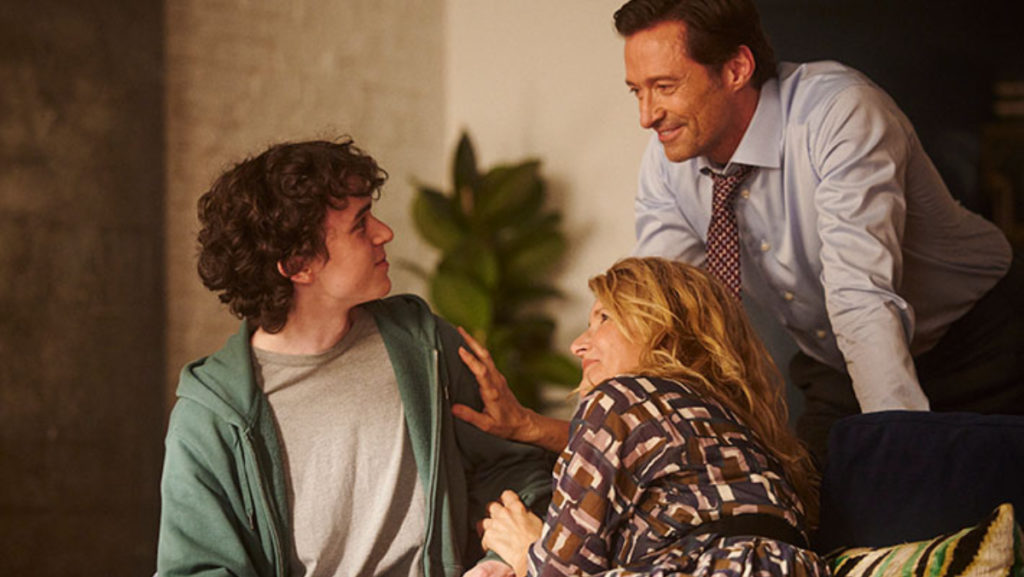At the heart of Florian Zeller’s newest film is a parent struggling to connect with his child and not knowing how to help him.
Peter’s (Hugh Jackman) child suffers from depression, that much is clear, but why exactly is unknown. It’s a reality that is likely to ring true for many parents today. Unfortunately, it quickly becomes clear that Zeller is more interested in emotionally manipulating his audience members than actually exploring this topic with much nuance or thought.
“The Son,” adapted from Zeller’s own 2018 stage play, follows Peter when his ex-wife, Kate (Laura Dern), suddenly turns up one day. She is concerned about their son, Nicholas (Zen McGrath), who has not gone to school in a month and is harming himself. Peter agrees to have Nicholas move back in with him and his new partner, Beth (Vanessa Kirby), as he tries to understand what is going on with him — an effort that throws his life into emotional turmoil.
After the success of Zeller’s first directorial effort, “The Father” (2020), his follow-up was naturally highly anticipated. With an all-star cast, his excellent writing partner in Christopher Hampton returning (whose credits include “Atonement” and “Dangerous Liaisons”) and an emotionally rich story at hand, it seemed like there was no way “The Son” could fail. Well, somehow it managed to.
McGrath, who portrays the film’s titular son, is sadly miscast and entirely unconvincing in the role. This makes it extremely difficult for any viewer to be able to sympathize with him; his line readings grow more and more melodramatic and inauthentic as his character externalizes his sadness. While Dern and Kirby have beautiful moments in their performances that ring with honesty, the weak script just does not give them much to work with. Jackman, in the lead role, leaves the strongest impression here, stunningly portraying his character’s regret and inability to help his son through his difficult days with just a simple look of his eyes.
The biggest problem with Zeller and Hampton’s script is its vapid, one-note depiction of mental health issues. It’s clear that their efforts here were well-intentioned in bringing much-needed awareness to the struggles that many young people face with their mental health, but perhaps this just was not the right story for them to tell.
Nicholas is a poorly written character that always seems to be in a state of such visible distress, as if the audience needs a constant reminder of his suffering in order to sympathize with him. The opposite effect occurs, not allowing for any kind of conversation to surface about the subtle warning signs that someone is in pain, or the ways that people who face depression may try to hide how they truly feel from the people around them. By the time the story reaches its end that borders on being trauma porn, the audience is left with nothing but a bitter taste in their mouth.
While the two stories are entirely different, “The Father” and “The Son” are similar in that they were both adapted from stage plays by Zeller. “The Father” successfully made the leap to the big screen with its uniquely cinematic choices, like subtly making changes to the production design of the house to depict how dementia can affect someone’s perception of time.
Sadly, “The Son” does not carry the same success. The staging of the actors is too theatrical and over-directed, failing to make crucial moments between the characters feel lived in and real. The cinematography and visual tone of the film also falls flat, leaving the script to do the heavy lifting (which it clearly isn’t strong enough to do). Even the score by Hans Zimmer feels more like an afterthought.
Underneath the film’s emotional velocity and shouting proclamations of grief and loss, it is not difficult to see how little Zeller and Hampton have to say about anything at the end of the day.




















